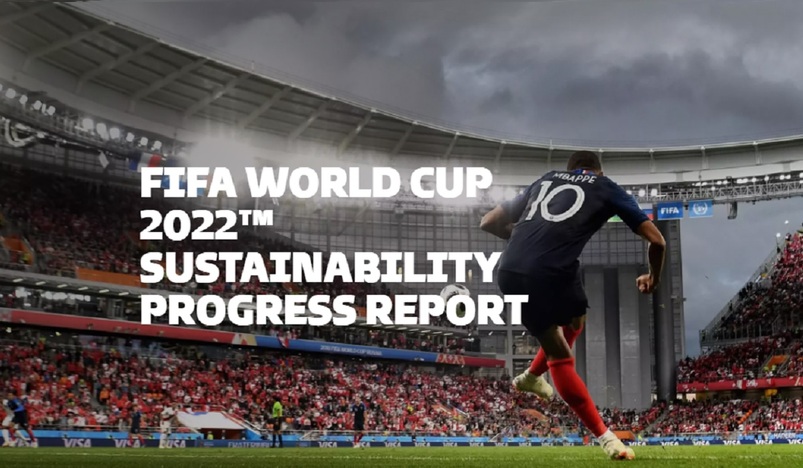
FIFA World Cup Qatar 2022 Progress Report
Sustainability has been at the heart of the FIFA World Cup Qatar 2022™ project from the start, premised on the idea that the preparation and delivery of a mega-sporting event can have a significant long-term impact by leaving a greener, more equitable place for generations to come.
The latest FIFA World Cup Qatar 2022™ Sustainability Progress Report can now be accessed online by the public, and for the first time as a living document via this link. This new format enables FIFA, the Supreme Committee for Delivery & Legacy (SC) and the FIFA World Cup Qatar 2022 LLC (Q22) to continuously update stakeholders on progress and performance regarding tournament sustainability efforts, and communicate key achievements as they occur.
The FIFA World Cup Qatar 2022 Sustainability Strategy was developed by collaborating with the tournament’s primary delivery partners. It sets out the joint sustainability objectives and associated initiatives to address the critical sustainability issues identified for the tournament under five pillars: human, social, economic, environmental, and governance. By implementing the strategy, a sustainable and lasting legacy will be felt for many years after the final whistle and contribute to both FIFA’s vision and Qatar’s national development goals.
This report describes how FIFA and Qatar are delivering against the 79 initiatives of the sustainability strategy. In particular, as the tournament organisers transitioned from the construction phase to tournament operations over the last 18 months, a number of benchmarks have been set along with some key highlights, including key labour reforms were passed by the Qatari government, including the dismantling of the kafala system, establishment of a non-discriminatory minimum wage, removal of exit permit requirements and enabling of workers to change jobs more freely, the SC’s Workers’ Welfare Standards are being enforced across tournament service providers, including the hospitality sector, to ensure the highest standards of health, safety, well-being and security for all workers involved in the delivery of the tournament.
Others are the SC’s Workers’ Welfare Department implemented a compliance programme during the FIFA Club World Cup 2020, held in February 2021, and the FIFA Arab Cup 2021 qualifiers, held in June 2021, the FIFA World Cup 2022 Human Rights Grievance Mechanism was launched in 2021 to capture human rights complaints and ensure that an appropriate remedy is provided. Besides, a greenhouse gas emissions inventory has been published, and the first voluntary carbon-offsetting programme in the Middle East was introduced to help deliver the first fully carbon-neutral FIFA World Cup. The Doha metro network has been fully operational since 2019. It will help reduce road congestion, air, and noise pollution, connect stadiums with popular visitor destinations, audio-descriptive commentary for blind and visually impaired spectators, and a sensory room for spectators with sensory requirements was tested successfully at the FIFA Arab Cup 2021.
The extensive amount of progress made has only been possible thanks to the tremendous efforts of the delivery partners – the SC, FIFA, Q22, the Qatari government, and all partners and organisations associated with the tournament. This online sustainability progress report will be updated regularly and supersedes the previous report published in late 2020.
The online sustainability progress report will be updated on a regular basis, and supersedes the previous report, which was published in late 2020.
The key achievements in the report are as follows:
Source: FIFA
.jpg)
Qatar Secures Place Among the World's Top 10 Wealthiest Nations
.jpg)
Hamad International Airport Witnesses Record Increase in Passenger Traffic

Saudi Arabia: Any visa holder can now perform Umrah

What are Qatar's Labour Laws on Annual Leave?
Leave a comment